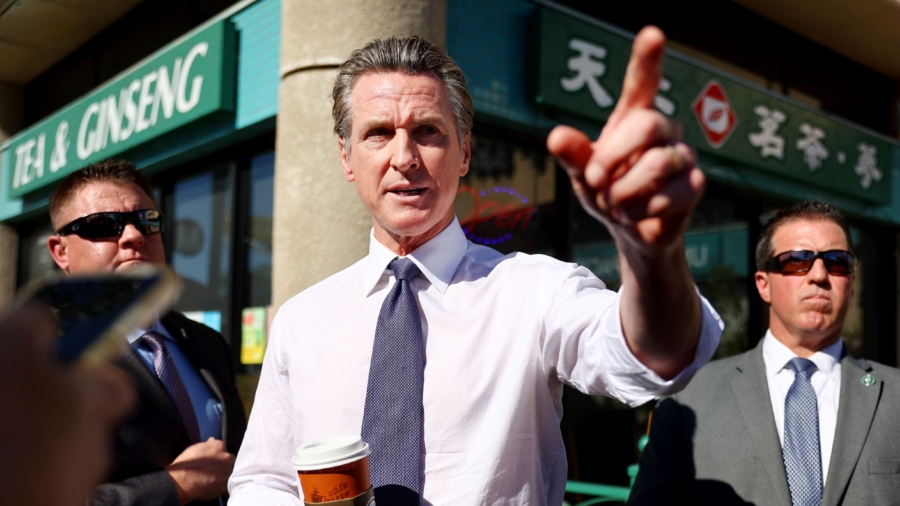A California judge on Wednesday halted the state’s so-called COVID-19 misinformation and disinformation law, which was challenged by doctors in two lawsuits, claiming it violates their constitutional rights.
In Hoeg v. Newsom, five doctors alleged that the state law, AB 2098, is unconstitutional under the First and Fourteenth Amendments of the U.S. Constitution. A separate related lawsuit, Hoang v. Bonta, makes similar allegations.
Both lawsuits sought a preliminary injunction to prevent California from enforcing the law.
The five doctors, Tracy Hoeg, Ram Duriseti, Aaron Kheriaty, Pete Mazolewski, and Azadeh Khatibi, filed their lawsuit against Gov. Gavin Newsom and other officials, including the president and members of the Medical Board of California.
They argued the law prevents them from providing information to their patients that may contradict what the law permits or prohibits. They also alleged the law was used to intimidate and punish physicians who disagreed with prevailing views on COVID-19.
Judge William Shubb, a George W. Bush appointee, wrote in his ruling (pdf) it was plausible that the medical board would determine their conduct violates AB 2098, and therefore the doctors’ fears are reasonable “given the ambiguity of the term ‘scientific consensus’ and of the definition of ‘misinformation’ as a whole.”
Shubb noted that this weighed in favor of the plaintiffs having standing.
“Because the definition of misinformation ‘fails to provide a person of ordinary intelligence fair notice of what is prohibited, [and] is so standardless that it authorizes or encourages seriously discriminatory enforcement,’ the provision is unconstitutionally vague,” Shubb wrote. “Accordingly, the court concludes that plaintiffs have demonstrated a likelihood of success on the merits of their vagueness challenges.”
The Law
Newsom signed the bill into law in September 2022, and it took effect on Jan. 1, 2023.
The law defines misinformation as “false information that is contradicted by contemporary scientific consensus,” and prohibits physicians from disseminating “misinformation or disinformation related to COVID-19, including false or misleading information regarding the nature and risks of the virus, its prevention and treatment; and the development, safety, and effectiveness of COVID-19 vaccines.”
Doctors who deviate from the established U.S. Centers for Disease Control and Prevention’s guidance by attempting to assess and advise their patients as individuals may run afoul of the new law.
The state medical board is required by law to act against any licensed doctor charged with unprofessional conduct.
The court’s ruling effectively halts the law while the legal challenge plays out.
The legal organization representing the doctors said their clients were put in a difficult position, fearing repercussions for acting in the best interests of their patients by giving them honest information, depriving them of their right to receive advice and hear treatment options without fear of professional discipline.
According to American Civil Liberties Alliance (ACLA), the First Amendment, which protects Americans’ rights to free speech and expression, applies to minority views and majority opinions.
The doctors alleged they have been threatened by other doctors and individuals on social media to use AB 2098 to have their licenses taken away, according to ACLA.
“They are being put between a rock and a hard place, fearing repercussions for acting in their patients’ best interests by honestly giving them the information they believe their patients need in order to make informed care decisions,” ACLA said in a summary of the case of its website.
One of the doctors in Hoeg v. Newsom welcomed the judge’s ruling.
“The ruling bodes well for our case: it indicates that our arguments that this law is unconstitutional have strong pre-trial facial plausibility,” Kheriaty wrote on Twitter. “Not to get ahead of ourselves, of course, or try to predict the final outcome of the case, but this is a very positive development.”
From The Epoch Times

